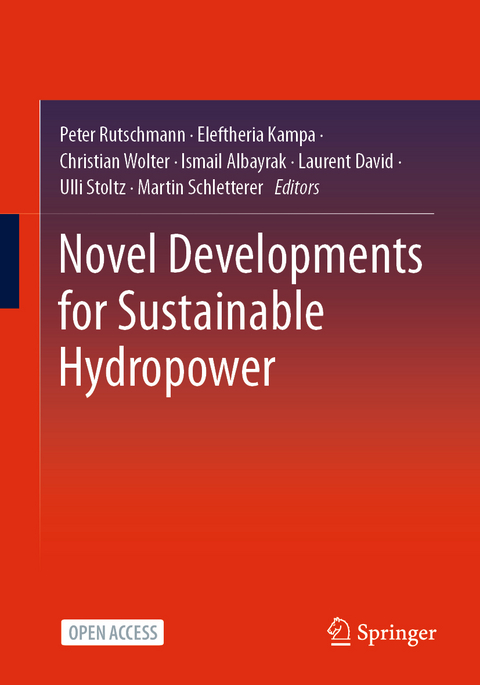
Novel Developments for Sustainable Hydropower
Springer International Publishing (Verlag)
978-3-030-99137-1 (ISBN)
This open access book presents (selected) new and innovative developments for sustainable and fish-friendly hydropower. It offers unique insights into the challenges, practices and policies of hydropower developments across 8 European countries, providing examples from on-site studies and European-wide analyses. The case studies throughout the book are practical "real-world" examples, which are intended to serve as inspiration for anyone who would like to know more about how solutions for more sustainable hydropower production can be designed and implemented.
Hydropower is an important renewable energy source, which, however, can also impact aquatic ecosystems, fish populations and hydro-morphology. EU and national water, environmental and energy legislation strive for sustainable energy and water resource management as well as the protection of important habitats and species. These have an effect on the requirements and decision making processes for hydropower planning, commissioning and operation. With a high variety of measures existing and site-specific conditions as well as national and EU level legal requirements to consider, it can be difficult to determine, what issues to address and which measures to implement.
lt;p>Peter Rutschmann worked almost 15 years as full professor for Hydraulic and Water Resources Engineering at Technical University of Munich. He retired in October 2021. He has 40 years of experience in hydraulic engineering and was involved in more than 50 hydropower projects. He is an expert in physical, numerical and ethohydraulic modelling.
Eleftheria Kampa is a senior fellow on water resources management at Ecologic Institute, focusing on comparative policy assessments across sectors and countries, the interface of science-policy and stakeholder participation.
Christian Wolter is fisheries engineer by training and now working as fish ecologist and senior scientist at the Leibniz Institute of Freshwater Ecology and Inland Fisheries (IGB) for 30 years.
1 Policy Framework for Hydropower Mitigation.- 2 Costs of Ecological Mitigation at Hydropower Plants.- 3 Public Acceptance of Hydropower.- 4 Impacts and Risks of Hydropower.- 5 The Attractiveness of Fishways and Bypass Facilities.- 6 Attraction Flow and Migration Habitat Assessment Using an Agent-Based Model.- 7 Fish Guidance Structures with Narrow Bar Spacing: Physical Barriers.- 8 Fish Guidance Structure with Wide Bar Spacing: Mechanical Behavioural Barrier.- 9 Guidelines for Application of Different Analysis Methods of Fish Passage Through Turbines - Impact Assessment of Fish Behavioural Aspects.- 10 Measures to Improve Fish Passage Through a Turbine.- 11 Archimedes Screw - An Alternative for Safe Migration Through Turbines?.- 12 Hydropeaking Impact Assessment for Iberian Cyprinids: Hydropeaking Tool Adaptation.- 13 Modelling of Habitat Changes Related to Hydropeaking with CASiMiR.- 14 Creation and Use of "Compensation" Habitats - An Integrated Approach.- 15 Risk Assessment and Decision Making on Mitigation Measures.- 16 Conclusions and Outlook.
| Erscheinungsdatum | 08.07.2022 |
|---|---|
| Zusatzinfo | XVII, 223 p. 66 illus., 60 illus. in color. |
| Verlagsort | Cham |
| Sprache | englisch |
| Maße | 168 x 240 mm |
| Gewicht | 420 g |
| Themenwelt | Naturwissenschaften ► Biologie ► Ökologie / Naturschutz |
| Technik ► Elektrotechnik / Energietechnik | |
| Technik ► Umwelttechnik / Biotechnologie | |
| Schlagworte | bypass facilities • Financing Hydropower • fish passage • hydropower • open access • sustainable hydropower • turbine passage |
| ISBN-10 | 3-030-99137-7 / 3030991377 |
| ISBN-13 | 978-3-030-99137-1 / 9783030991371 |
| Zustand | Neuware |
| Haben Sie eine Frage zum Produkt? |
aus dem Bereich


